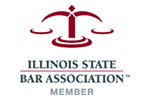800.825.9260
Guide to Probate
Introduction to Probate

The death of a family member can be a traumatic and devastating occurrence for anyone.
Even with sophisticated estate planning, families can find themselves immersed in the Probate Court for the probate of the decedent’s estate. The entire probate process may be confusing and is specialized, which only adds to the confusion of people who are dealing with the death of a family member.
The trauma surrounding the death may continue if the deceased’s estate needs to be addressed. The process is difficult to understand, even for those who have some legal training.
The purpose of probate is to have a court gives its stamp of approval on the passing of the assets of the deceased to the heirs and to ensure all of the debts of the deceased have been paid.
The word “probate” is derived from the Latin words meaning “a thing that is approved” and “to test and find good”. In Illinois, as in most states, the Probate Court is a highly specialized Court that has the power to oversee the administration of the estate of deceased person as well as the estates of individuals who are unable to handle their own affairs.
Generally, three types of matters are handled in Probate Court:
- Decedent’s estate;
- Disable’s estate; and
- Minor’s estate.
The rules governing the administration of these three different estates are all spelled out by special rules that gives the Probate Court authority to act on behalf of these estates.
The Illinois Probate Act contains the rules for Illinois Probate Court to follow in administrating estates.
Probate of Decedent’s Estate
Frequently the property and financial affairs of a deceased person are supervised through the court process in Probate Court. This may have been planned by the decedent or as a result of the failure to utilize some legal devices to avoid the necessity of probate.
If the decedent left a Will, then the Will will govern the distribution of the estate once the estate has been opened and accepted by the Probate Court. If there is a Will, then the estate is referred to as a “testate” estate. This merely means that the deceased person left instructions on how they want their property and financial affairs to be distributed and handled upon their death.
Within 30 days after a person’s death, anyone having the possession of the decedent’s Will must take steps to ensure that the Will is recorded with the Probate Clerk.
It is actually a crime not to record a person’s Will if you have possession of it within 30 days of death. The concealment or destruction of a Will is considered by Illinois courts to be a theft and is prosecuted as a theft.
If there is no Will, then the estate is considered to be an “intestate” estate. The rules governing an intestate estate are specifically spelled out in the Illinois Probate Act which includes instructions as to who should serve as the administrator and specific instructions on how the property is to pass to the heirs of the deceased.
Any person can file a petition asking the court to admit the Will to probate and to, name an “executor” (testate estate) or “administrator” (intestate estate), to determine the heirs of the deceased and to open the estate to Probate.
The decision on who will serve as the executor or administrator is strictly governed by the Will or the probate laws of Illinois.
Duties of Executor
The “executor” is the person who is named in the Will that the decedent wanted to pay all debts and distribute the property pursuant to the decedant’s wishes outlined in the Will. The executor ensures that the intent of the descendant is fulfilled. The executor has responsibility to gather all of the necessary documents and bills and then to take the necessary steps to collect the assets make sure all debts are paid and the remaining property goes to the persons named in the Will. The basic steps may be as follows:
- The Court must first determine the heirs of the decedent. The executor is then required to notify the heirs in writing of the admission of the Will and the opening of the estate.
- The executor immediately must publish a written notice in a newspaper within the county of the Probate Court to notify potential claimants of the death and the timeframe in which to file a claim. The law in Illinois provides such creditors six months to file those claims.
- Once the claims are paid or determined to be non-existent, applicable taxes are paid, and any specific gifts under the Will (‘legacies”) are delivered, then the balance of the decedent’s property can be delivered accordingly to the individual’s intent. Those that receive the property can then be sure the there are no claims against it..
- Because this process can be time-consuming, the law generally requires that the executor also file written accounts with the court on an annual basis. The purpose of these accounts is to advise the Court and the heirs of the particular financial receipts and disbursements while the estate is being administered.
In short, the executor is required to protect or preserve the assets, pay any valid claims, and eventually to distribute the remainder of the estate to those individuals specifically listed in the Will.
Benefits of Probate
A lot has been written about the high cost of probate and the evils of probate. The negatives have been emphasized by estate planners who sell trusts as a solution. But, there are benefits. Debts can be resolved with creditors and disputes between family members can be adjudicated. Probate does require experienced lawyers to help a family deal with the complexities of the legal system.
The firm of Bellas & Wachowski Attorneys at Law can help you make the necessary estate planning decisions in a cost-effective manner. Contact Attorney Tracy Ries at tracy@bellas-wachowski.com 847.823.9030 x221 for more information.










